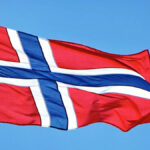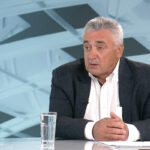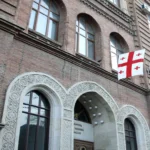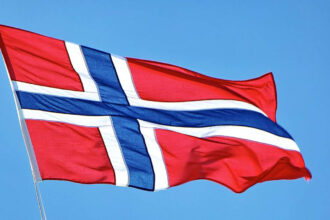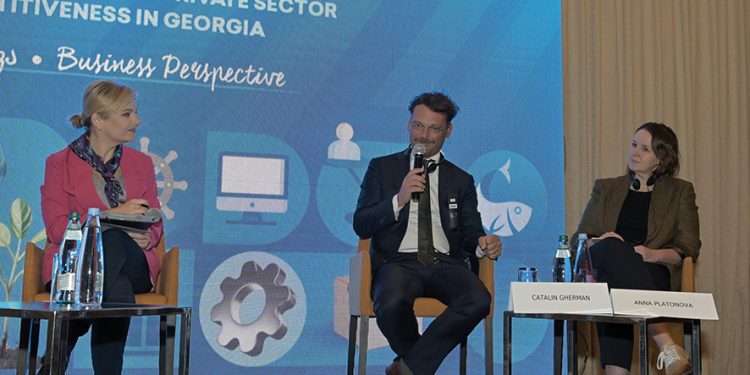EU and UN Showcase the Success of EUR 5,1 Million Initiative for Competitiveness in the Private Sector in Georgia – Partnership Sparks entrepreneurship, green economy, and economic resilience
The European Union and United Nations presented their EUR 5.1 Million initiative, “EU Innovative Action for Private Sector Competitiveness In Georgia”. This program, which ran from 2019 to 2023 spanned five years and had a significant impact on business development in Georgia. It helped make significant progress in advancing the circular economic system, creating robust business clusters and improving legislative frameworks.
This landmark program directly benefited up to 100 small- and medium-sized businesses across the country. It also played a significant part in establishing and nurturing 4 business clusters. Some of these have received international acclaim through the European Cluster Excellence Initiative. The program also provided learning and development opportunities to over 1,500 farmers and entrepreneurs in Georgia, enhancing their business skills and improving their prospects on the international market.
The program was implemented with financial support from the European Union in close partnership with Georgian government and private sector. Four UN agencies were also actively involved: the United Nations Development Program, the Food and Agriculture Organization, the United Nations Industrial Development Organization, and the International Organization for Migration.
On 14 November, distinguished speakers from both the public and private sectors highlighted the impact of this collaborative effort.
“The EU’s Innovative Action for Private Sector Competitiveness has revealed various opportunities for the sector, laying a foundation for continued economic progress,” said Catalin German, Deputy Director of Cooperation at Delegation of European Union to Georgia. “The European Union is unwavering in their support for Georgia’s Private Sector, actively promoting sustainable practices and cultivating a prospective growth of Georgian business and industrial landscape.”
Douglas Webb, UNDP Resident Representative a.i. In Georgia, the private sector was cited as a key player in achieving sustainable development and safeguarding economic and socio-economic rights.
Webb stated that “together with the European Union, UN agencies and small and medium-sized businesses across the country, UNDP works hand-in-hand to support Georgia’s transformational journey towards a strong, sustainable and inclusive economy, focused on the interests of people and planet.” “Our support benefited one of Georgia’s most powerful clusters of packaging companies, PMAG. It has grown its membership to over 60 companies. It has excelled in digitalization, introduced environmentally-friendly business practices such as sustainable production, recycling and received international recognition from both the European Cluster Excellence Initiative (ECEI) and the World Packaging Organization. These impressive transformations led to a more-than-twofold increase in sales for the entire PMAG Network from 2018 to 2022.
Javier Sanz Alvarez is the FAO program coordinator. “Under this initiative, FAO has supported local production of saplings by developing a legislative framework in collaboration with the National Food Agency (NAF) and the Scientific Research Center for Agriculture.” “We also supported 20 nurseries, increasing their technical capacity and providing equipment. FAO has also trained up to 1,000 producers in modern sustainable agricultural production practices and helped them gain access to local markets. The project’s achievements will contribute to a more sustainable agriculture production in terms quantity, quality and environmental impact.
Giorgi Andguladze is the UNIDO National Project Co-ordinator. He said that “UNIDO has directly supported 36 SMEs in Georgia and trained/coaxed up to 300 beneficiaries from different business sectors.” “UNIDO helped producers overcome production and quality management constraints, allowing them sustainably to resume their business operations.” Notably, a company gained Good Distribution Practices (GDP) certification to gain access to the market. The Georgian Marine Fishing Clusters and Biopharmaceutical Clusters were able to unite different producers through joint activities and achieve the objectives that would have been left unresolved if the EU-funded project hadn’t provided assistance from UNIDO.
Sanja Celebic, IOM’s Chief of Mission, said, “By cultivating a dynamic relationship between the diaspora, local businesses and the EU, we have mapped out the prominent Georgian diaspora both in the EU and worldwide.” “Through our database of approximately 4000 diaspora profile, we have actively engaged hundreds of individuals to explore their skills, experiences, and interests. Our main goal is to create strong connections between local businesses, the diaspora and their resources, knowledge and ideas. This initiative has not just strengthened trade, but also facilitated the capacity building and driven collaboration initiatives. “The role of the diaspora as agents for local growth was successfully tested.”
The program’s support for business clusters in Georgia has been a major success, as it has increased the opportunities of participating companies and entire business segments to excel both nationally & globally. The European Union and the United Nations supported four business clusters that each contributed to specific areas of Georgia’s economy.
1. Packaging Cluster – PMAG, holder of the ECEI Bronze Label, and full member of the World Packaging Organization. Supported by UNDP.
2. Cluster of Seedlings and Seeds, facilitating development of the National Seedling Certification System, technical support to nurseries, farmer training and Farmers’ Markets. Supported by FAO.
3. Georgian Biopharmaceutical Cluster. Supported by UNIDO.
4. Marine Fishing Cluster. Supported by UNIDO.
The program also helped strengthen public-private partnership in various areas of business, including waste management. In 2023, regional authorities and local governments in both western Georgia and eastern Georgia will reiterate their commitment to this issue by signing declarations with packaging companies and other international partners. The aim is to improve waste management practices at the municipal level and promote separation and recycling.
The program played a crucial role in creating strong links between Georgia’s small- and medium-sized producers, and the Georgian Diaspora in EU member states. This collaborative approach fostered collaboration and partnership across boundaries, strengthening Georgia’s position on the global market.
The “EU Innovative Action for Private Sector Competitivity in Georgia” opened up new opportunities for the sector and laid the foundation for further advancements towards more modern, sustainable and greener business practices. The European Union and United Nations are committed to helping Georgia achieve a sustainable, prosperous future.
# # #
Background Information:
The EU Innovative Action for Private Sector Competitivity in Georgia is a EU-funded initiative that boasts an investment of EUR 5,1 million. This initiative is implemented in partnership with UNDP and the Food and Agriculture Organization, the United Nations Industrial Development Organization, and the International Organization for Migration. It aims at promoting entrepreneurship, improving legislative frameworks, providing better access to financing, and strengthening cooperation with EU member states.
Read More @ georgiatoday.ge

